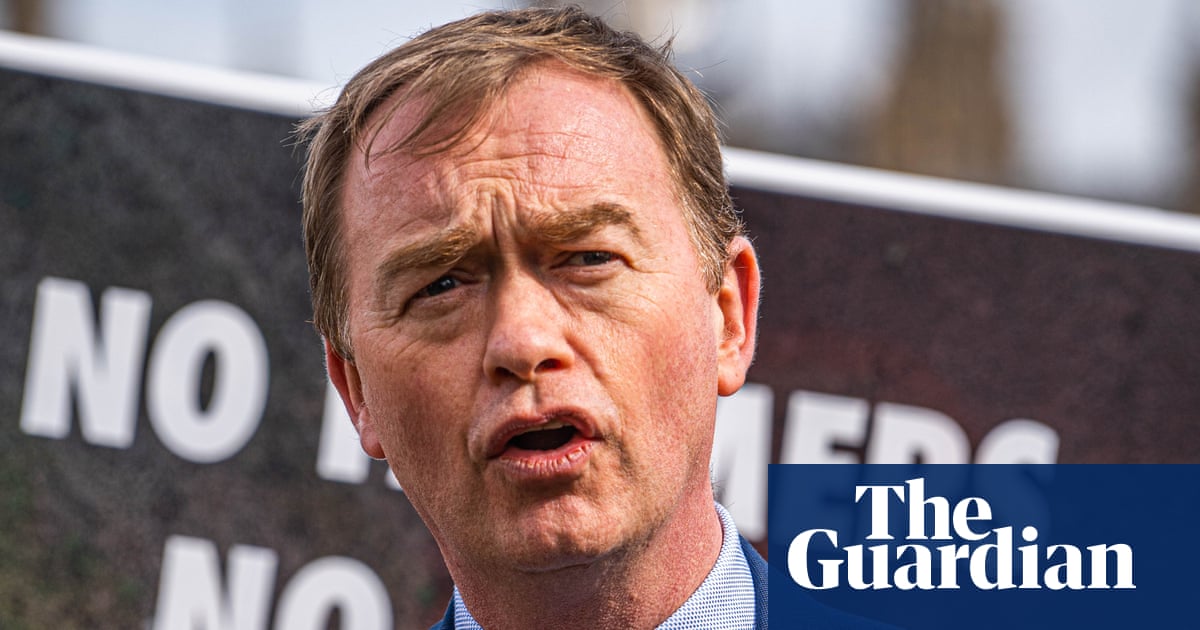Carmakers are on track to meet existing UK electric car sales targets despite having successfully lobbied the government to water them down.
Electric car sales made up 21.6% of sales in the first half of 2025, only marginally below the 22.06% share needed to meet existing rules once concessions are taken into account, according to an analysis by New AutoMotive, a thinktank.
The Conservative government under Rishi Sunak brought in the zero-emission vehicle (ZEV) mandate. It forced carmakers to sell an increasing proportion of electric cars or face steep fines of up to £15,000 for every vehicle above their fossil fuel quota.
However, in April the business secretary, Jonathan Reynolds, confirmed the Labour government would relax the rules after an intensive lobbying campaign by the UK car industry against the policy.
The Vauxhall maker Stellantis blamed its decision to close its Luton van factory on the mandate, although earlier comments by executives appeared to undermine that argument.
Carmakers are aiming for a headline target of 28% electric sales to avoid fines this year, but “flexibilities” within the rules mean the effective target – as calculated by New AutoMotive – is much lower.
That is because manufacturers are allowed to borrow electric sales from later years and to gain credit for cutting emissions by selling more hybrids. After the government climbdown manufacturers are to be given more freedom on how they meet their yearly targets and to face lower fines.
Ben Nelmes, the chief executive of New AutoMotive, said: “Carmakers are within touching distance of their targets for 2025 before taking into account the government’s decision to weaken the targets for this year.
“This impressive progress should reassure ministers that ambitious targets spur the innovation and dynamism the UK needs to achieve net zero and get ahead in the global shift towards electric vehicles.”
Weakening the rules could benefit individual carmakers in particular. New AutoMotive’s analysis suggests the Japanese carmaker Nissan is the farthest away from what it needs to achieve in 2025, as it waits for its factory in Sunderland in northern England to start production of its new Leaf electric car.
Toyota and JLR, maker of the Jaguar and Land Rover brands, are also well behind their effective targets.
after newsletter promotion
The decision to weaken the targets is expected to mean significant extra carbon emissions, despite government claims that the impact would be “negligible”.
The Society of Motor Manufacturers and Traders chief executive, Mike Hawes, said that with one in four new car buyers choosing an EV last month, the market was moving forward “but not at the pace needed”.
“The headline figures belie the fact that just 13% of private buyers have gone fully electric this year, with growth driven by fleets which benefit from compelling fiscal incentives,” said Hawes.
“The lack of natural demand among private consumers has forced manufacturers into unsustainable discounting and led them to seek increased regulatory flexibilities to avoid the double whammy of having to incentivise sales and pay punitive fines.”
Britons were wary of going electric for a number of reasons, including higher vehicle costs and an inconsistent and expensive array of public charge points, Hawes said, adding: “The best way to encourage drivers to trade in their older, more polluting vehicles for new zero emission ones would be for government to emulate other countries and reintroduce the compelling purchase incentives it once provided.”

 2 months ago
91
2 months ago
91

















































